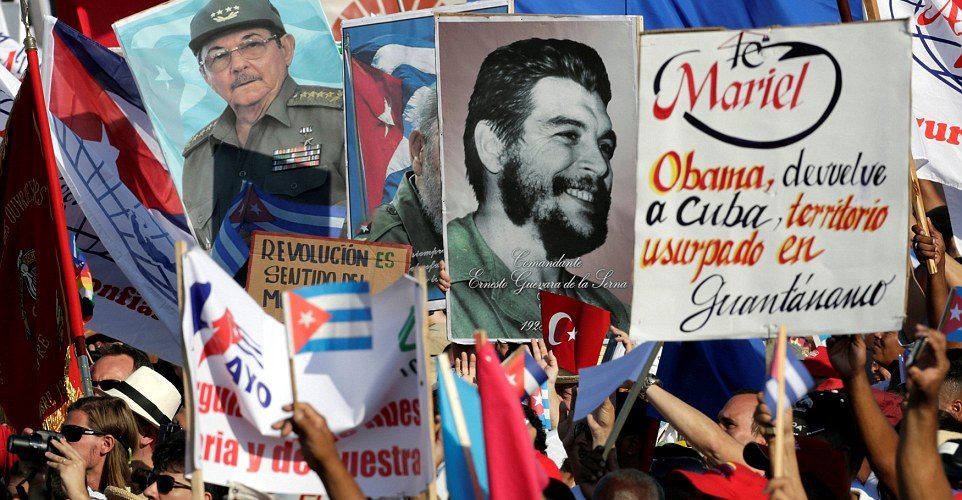Trump’s State Department has just announced the initiation of a “Cuban Internet Task Force”—another illegal, offensive and typical act of interference in the internal affairs of a nation lining up to conclude its general election process.
It makes a bit of a mockery of their indignation at what Russia was allegedly at during the last campaign there, to say the least.
If the empire’s same State Department, CIA and other hungry establishment dogs believe they might get to gnaw on the bone that has so long been denied them, because by next April, Cuba’s government—for the first time in more than five decades—will not have a Castro at the helm, the spies they withdrew from the embassy here for supposedly having suffered “sonic attacks” were not doing their homework.
Despite the best (and worst) endeavours of the neighbouring enemy, the collapse in oil prices, which significantly affected Cuba’s access to convertible currency, and a series of devastating and very costly hurricanes and other regional complications, Raúl Castro’s progressive, reforming and stable ten-year presidency proved very successful, and he leaves a steady, socialist, stable and stronger Cuba to his successor in office.
People here are far more focused on the finals of the National Baseball League, an obvious drop in the number of tourists during the latter part of last year and the first month of this one, and other, more mundane affairs of daily life.
Raúl Castro was also at his best and brightest on the international front, and his statesmanship, diplomatic skill and respectful but unflinching adherence to Cuba’s fundamental principles have earned him the respect and admiration of the world’s most important leaders and a grudging acceptance by even those ideologically opposed to everything he represents.
As Fidel had also done, Raúl ensured that Cuba continued to punch far above the political weight of a poor, blockaded and relatively tiny Caribbean island, for reasons that go far beyond its geopolitical significance.
Raúl’s contribution to and facilitation of the talks between the FARC guerrillas in Colombia and its government will also form part of his legacy.
Unless he can do something between now and the end of his second term in office in a short few weeks’ time, his biggest regret may be that he could not create the requisite economic conditions for abolishing Cuba’s divisive and socially destructive two-currency system.
In his speech at the closing of last December’s session of the National Assembly, Raúl admitted that neither he nor anybody else had truly grasped how complex a problem this was going to be.
He also acknowledged, however, that—allowing for the distortion caused by the economic, commercial and financial blockade imposed by the United States—the duality prohibited the full realisation of the social, political and economic objectives adopted by the Communist Party’s Sixth Congress, which form the basis for policy development until 2030.
Any premature move to unify the currencies would create further inflationary pressure and worsen what is one of Cuba’s more invisible but serious domestic economic problems, and something that warrants comment in its own right on another occasion.
Even though Raúl, who is now well into his eighties, will remain on as first secretary of the Communist Party of Cuba until 2020, his departure, and that of his lifetime comrade in arms and colleague, the 89-year-old Machado Ventura, will be profoundly felt.
Just as Fidel’s physical presence was palpable in the aftermath of last September’s deadly and destructive storms, Raúl’s reassuring presence and stately stoicism will be missed by his people.
The changing of the guard is not expected here to result in even a ripple of domestic political or social instability, and interference by the United States to try to create some will only serve to fortify Cuba’s renowned capacity to remain united and firm in defence of its sovereignty, socialism, and hard-won right to self-determination.
Hasta la victoria siempre, Raúl!






